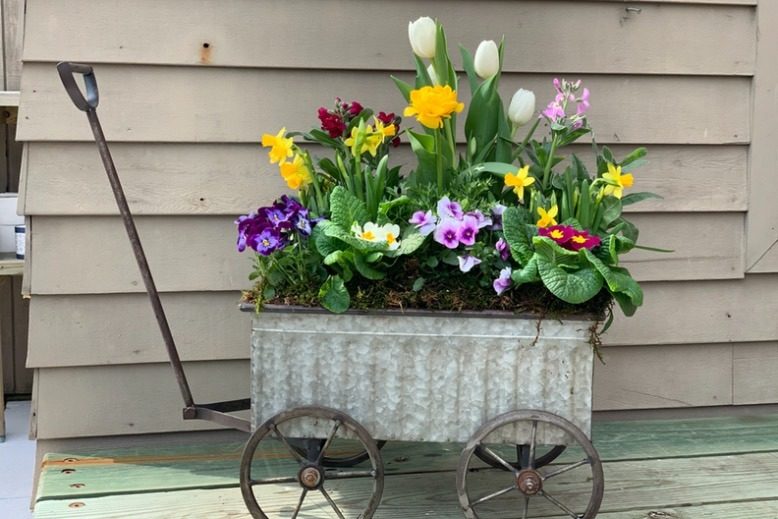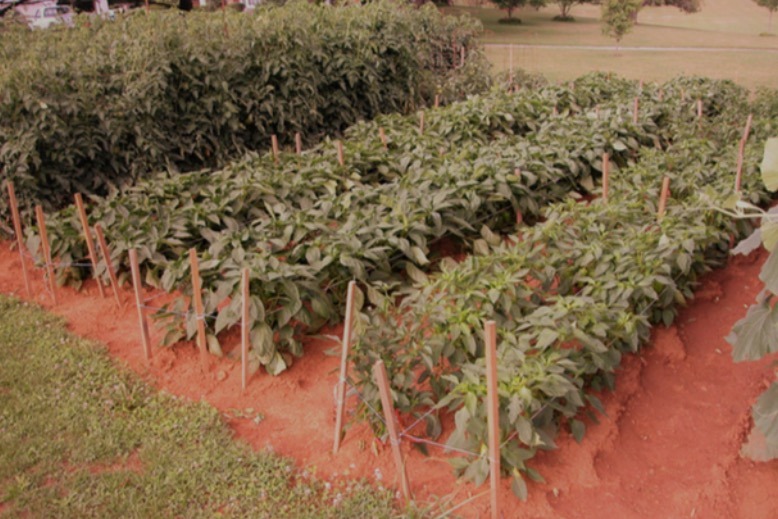
Gardening can be an intensely therapeutic activity—and something that can help now, more than ever, as we shelter in place amid the pandemic. With temperatures finally signaling spring, it’s time to head outside, to the safety of our own backyards, and start digging in the dirt.
“Gardening has always been touted as a relaxing recreational activity that can provide great personal rewards,” says Michelle Infante-Casella, a professor and agricultural agent at Rutgers University. “During this time, when many people are working at home and students are learning at home, gardening can be a positive, family-inclusive activity to adopt.”
Gardening, at its core, is life affirming. It is, after all, creating life—in the form of vegetables, flowers and plants. “This has been our busiest year ever for fresh vegetables and herbs,” says Peg Reynolds of Reynolds Garden Center in Manahawkin. The mini village of gift shops, a greenhouse and garden center, is doing a brisk business online. While the shops are closed, the garden center—like many around the state—is open for curbside pickup; gift and gourmet baskets are available for pickup or delivery. Also, the greenhouse is open “for two guests at a time,” Reynolds says. “We give gloves to all our customers and we require they all wear masks.”
Infante-Casella believes this is an ideal time to learn to garden. “From a mental aspect, growing a vegetable garden may be a way for adults and children to cope with boredom and help families gain a sense of security,” she says.
What can the amateur gardener begin doing while it’s still early in the season? Plenty, promises Reynolds. Vegetables that need colder weather to grow can be planted now; these include lettuces, beets, brussels sprouts, broccoli, cabbage, peas, cauliflower and potatoes. Other vegetables, in seedling form, can be purchased now and kept inside until it warms up a bit, generally around Mother’s Day (May 10 this year). “The ground is still too cold for some of the tender vegetables like tomatoes and cucumbers,” Reynolds explains. “Watch the weather!”
[RELATED: Jersey’s Flower CSAs Yield a Bounty of Bouquets]
Growing your own food can be a rewarding pastime. Think of your garden as a private food source, saving you trips to the grocery store—especially for perishable items such as lettuce and other greens, points out Infante-Casella. “In my garden right now, I have Swiss chard growing. Also: peas, white potatoes and lettuces,” she says. “These are all cold-weather vegetables we can plant right after St. Patrick’s Day.” Fresh herbs are another category of easy-to-grow cold-weather plants. “Herbs that are cold-tolerant include parsley, sage, cilantro, rosemary, thyme and chives,” says Infante-Casella. “The only one that can’t be outside right now is basil.”

Courtesy of Michelle Infante-Casella
So get out there and start digging, pruning, cleaning and composting! Here’s how the experts at Reynolds Garden Center suggest you prepare your yard:
- Walk through your yard, taking note of areas that need attention. Make a to-do list of essential tasks.
- Remove dead branches, leaves and other debris. Cut dead stalks from perennials and shrubs so they’ll grow stronger.
- Even out mulch that may have shifted during winter storms. Add mulch in areas where it may have washed away.
- Feed garden beds with compost or other organic plant food, giving them the nutrients necessary to thrive.
- Prune evergreens to promote new growth.
- Prune flowering shrubs such as rose of Sharon, forsythia and lilac.
Once the dirty work is done, be patient. Even if your garden is ready, experts advise waiting until the last frost date to plant annuals and perennials outside. Experts also suggest consulting the USDA Plant Hardiness Zone Map.
Still got gardening questions? Call a Rutgers Master Gardener helpline, or email the Reynolds Garden Center at [email protected] (“We will respond to all questions in 24 to 48 hours,” Reynolds says).



